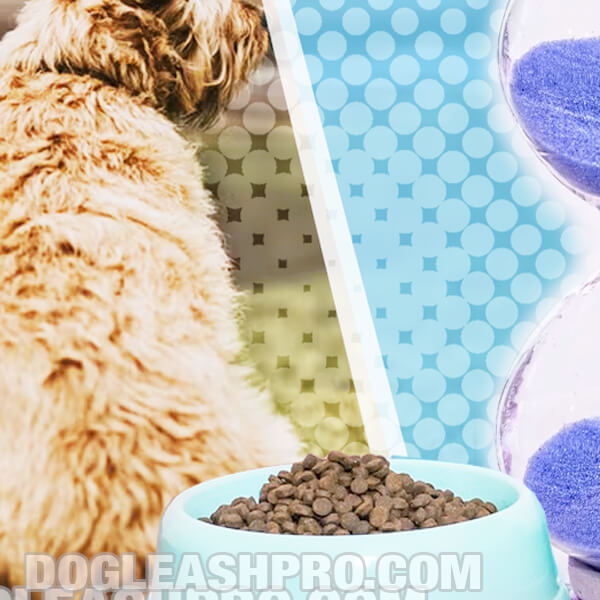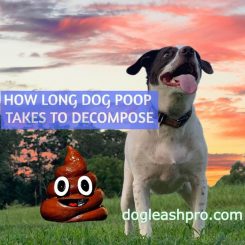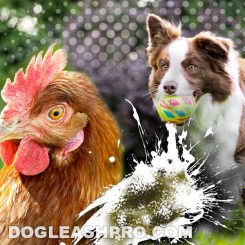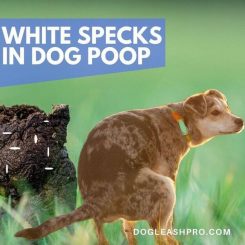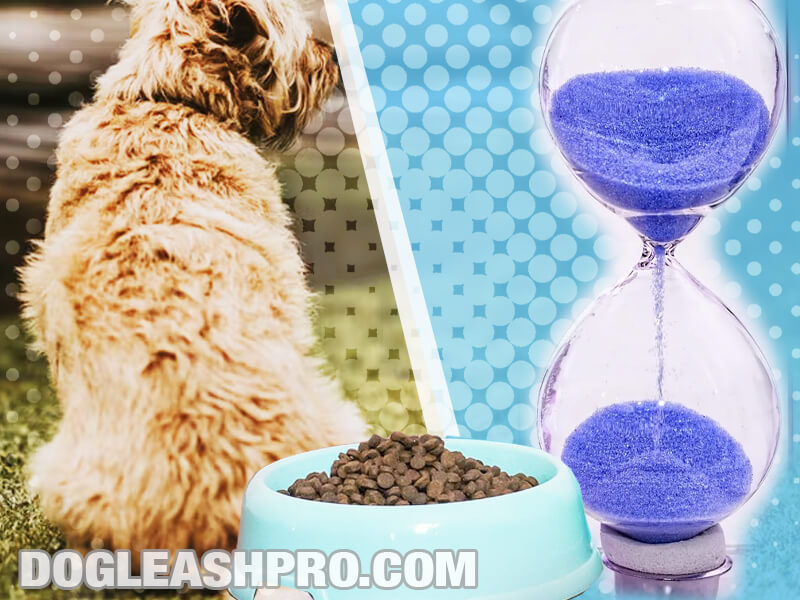
If you have a furry family member, it’s crucial to know how long after a dog eats do they poop. This will help you plan your daily routine around your K9 friend’s eating and pooping schedule. With this information, you’ll be able to make sure your dog isn’t holding their poop for too long and causing accidents when you’re out at work or heading to bed. So, here’s the brief answer first.
How long after eating do dogs poop? After eating, the food usually takes 6 to 8 hours to pass through your dog’s stomach and digestive system. This means your fur babies will need to go out and poop about 7 hours after eating. If you have puppies, they will need to go poop about 4 hours after eating.
It’s natural for our canine friends to poop after every meal, but note that it may not be immediately right after the meal. It may take time – up to 7 hours before they need to poop.
In fact, if your pooch needs to poop right after his meal, the poop could be from the food they ate from a previous meal and not from the food they’ve just ingested. It’s no wonder this is a popular question amongst dog owners. The answer to this question isn’t as simple and it also depends on the type of food you’re feeding your canine companions.
Table of Contents
How long after a dog eats do they poop?
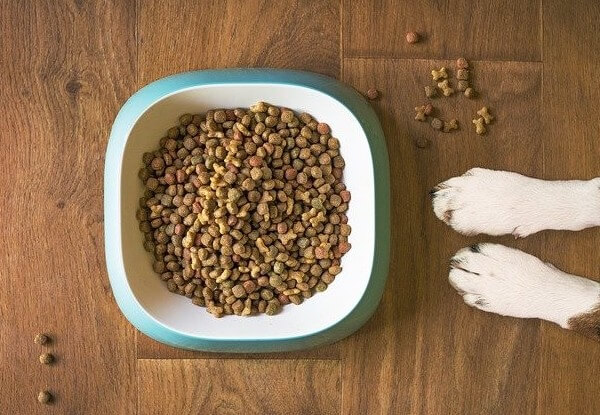
It usually takes a dog about 7 hours to digest its food. As mentioned earlier, the type of food you’re feeding your canine companion and the ingredients in the food will affect how long after eating your K9 friends will need to poop.
For instance, if you feed your canine companion wet food, which has a higher water content than dry food, then it’s much quicker and easier for that food to pass through your pup’s digestive system.
Did you know that most canned dog foods have a high percentage of water content? They usually contain about 75% water content. Now you may be wondering if the dog food manufacturers are adding 75% water to 25% ingredients.
No, not at all. The reason why there is 75% water content in most canned doggy food is that the ingredients themselves contain around 75% water on average.
Protein such as meat in dog food, specifically, muscle meat contains about 75% water content. It is moist and very nutritious for our pooch. If you’re curious to find out how much water content the meat contains in the canned dog food, simply check the nutritional label.
The nutritional label details how much moisture the food contains which is helpful if you want to guesstimate how long after a dog eats do they poop.
It’s always a good idea to feed your dogs food that is easily digestible such as lean protein like chicken, fish, and turkey. That’s because food that is highly digestible means your dogs’ bodies are able to absorb a high amount of nutrients from the food.
This means less food waste since your pooch will be full and nourished and he or she does not need to eat as much food to satisfy their nutritional needs.
When you compare highly digestive food with lower digestible food, the difference is noticeable. Lower digestible food means your furry friends may need to eat more food to meet their nutritional needs and they may need to poop more frequently after eating their meal.
This is why digestibility is important. Digestibility is a way to measure the amount of nutrients your four-legged friends absorbed from the food they’re consuming.
If you’re concerned about the digestibility of the food you’re feeding your pooch, we highly recommend that you consult with your vet. Your vet knows your canine friends the best and will be able to offer dietary advice and recommendations.
In general, any food that has an 82% or above in digestibility is considered high-quality food since 18% of the food becomes poop. Food that has less than 75% digestibility is considered low-quality food since 25% of the food becomes poop.
As we can see, high-quality food or food that have a higher percentage of digestibility has two benefits:
- Your canine friends will absorb more of the nutrients from the food.
- There is less waste (poop) when dogs eat food that’s high quality and highly digestible.
Another factor that affects the digestibility of the food is the ingredients themselves.
Fortunately, most canned doggy foods contain the main ingredient – meat! Meat like fish and chicken have high digestibility levels.
In fact, the digestibility level of fish is 87% and the digestibility level of chicken is 80.2%.
Some canned dog food also contains lamb as its main ingredient. However, the digestibility level of lamb is 71.5%, which isn’t as high as fish or chicken.
Another common ingredient you’ll find in dog food is grain. Compared to protein sources like chicken or fish, grain takes longer for your dog’s body to digest. To find out the composition of your dog’s food, you can take a quick look at the nutritional label on the can or on the bag.
Handy Hint: If you prefer to feed your pooch homemade dog food, you can try using Amaranth as a safe and healthier alternative to grains. Amaranth is packed full of protein, is rich in dietary minerals and contains all the essential amino acids. To learn more, check out Can Dogs Eat Amaranth?
Looking through the ingredient list can be confusing so we’d like to share one quick tip.
The ingredients on the nutrition label are listed by order from highest to lowest volume in the food. For instance, if you see turkey, chicken, chicken broth, brown rice….etc listed in this order, then it means the doggy food contains the most volume of turkey, then chicken, then chicken broth, and so on.
Since turkey and chicken contain the most volume in the doggy food, you’ll know that the food is likely to be easier on the dog’s digestive system and is much quicker to digest – and thus may take less than 7 hours after eating to do a poop.
You may be interested in: Is Chicken Poop Bad For Dogs?
Do dogs poop after every meal?
Yes, most healthy dogs will need to go out and poop after each meal. In fact, it’s natural and common for healthy adult dogs to poop at least 1 to 3 times per day. If you have healthy puppies, they normally need to poop more often than adult dogs.
Since it can take up to 7 to 8 hours after eating to go poop, the poop could be from a previous meal and not from their current meal.
It’s important to note that no two dogs are the same so the amount of time it takes one dog to digest his food may be different for another dog. Therefore each dog will have his or her own pooping schedule that is different from another dog.
Regardless of how long it takes your K9 companions to digest their food and go poop, what matters most is to have a consistent pooping routine for your dog every day.
If it normally takes your precious pooch 7 hours to digest his food before needs to go poop and then he suddenly stops pooping or takes longer than 7 hours before he needs to poop, it could be a sign that something is not right.
If this is the case with your fur babies, we highly recommend that you bring your pooch to see the vet as soon as possible.
You may also like: How Long Does It Take For Dog Poop To Decompose?
When it comes to how often your four-legged friends need to poop, here are 6 other factors other than food.
1. Age of your dog
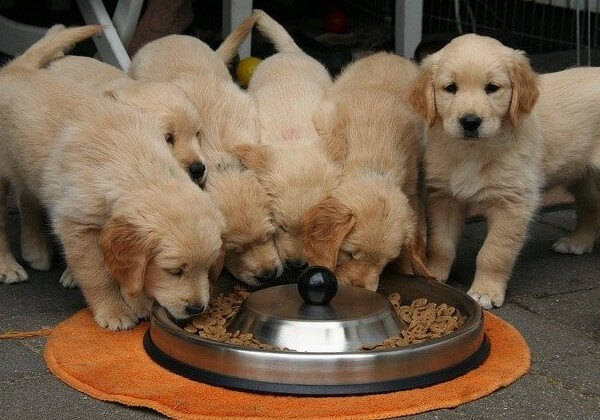
As mentioned earlier, healthy puppies need to poop more frequently than healthy adult dogs. Since puppies are young, their bodies and digestive system are still adapting (to new food) and developing control of their bowel movements.
Most puppies are also fed more frequently so that they can grow and be healthy and strong. This is another reason why they poop more often than adult dogs.
RELATED: How Many Times A Day Should A Puppy Poop?
Similar to puppies, you can also expect senior dogs to poop more frequently than adult dogs. That’s because their digestive system and muscle control in their bodies are weaker and less efficient than when they were adults or in their prime years.
2. Constipation
Constipation occurs when your dogs aren’t pooping as much as before. There are a number of factors that can cause constipation including the following:
- Not receiving enough fiber from their meal.
- Dehydration.
- Not enough or low levels of exercise.
- Health or medical issues.
If you suspect any of the above, you’ll want to bring your pooch to the veterinarian as soon as you can.
Handy Hint: If your dog is dehydrated, constipated, or not feeling well, we’ve shared the 10 best food to give your pooch with no appetite in our How to Get Your Dog to Eat When Sick guide. Check it out and bookmark the page for future reference!
3. Diarrhea
On the contrary, when dogs have diarrhea, it can also affect how often they need to poop. Diarrhea is when dogs need to poop more frequently than before or when there is a change in the color, consistency, or odor of the poop.
Diarrhea can occur when dogs eat rotten food like spoiled meat that upset their stomach or if they ate too much food.
If your pooch is feeling sick, has a serious health issue like liver failure, or has an infection, it can cause him to have diarrhea. If your dog continuously has diarrhea after 48 hours, it’s time to call your vet to find out what’s causing this.
4. Sudden change in how much food your dog is eating
If you suddenly feed your K9 companions more food than before, then it’s expected that their body will produce more waste and as a result, they will poop more frequently than before.
This usually occurs during the holidays like Thanksgiving, Christmas, Easter, and the Fourth of July. When your family is eating around the table, there’s always that one relative or visitor that can’t help but sneak some turkey meat under the table for your canine friends.
There are also more table scraps that may accidentally land on the floor which your dogs will gladly eat up. Some family members may even give your pooch more treats than what he or she is used to.
5. Ingredients in the food
If you feed your pooch food that has high fiber content, then your dog will need to poop more often than before. That’s because fiber adds bulk to the food and it helps the food pass through the digestive system more easily.
While fiber is essential to your dog’s daily diet and nutritional needs in order to promote and maintain healthy bowel movement, too much fiber can also cause your dogs to poop more often than before.
Obese dogs that are on weight management are usually fed weight loss dog food. This type of food has a high fiber content which gives the food more volume without causing your dogs to gain weight.
If you’re feeding your pooch weight loss dog food, you can expect that your pooch will produce more waste and will need to poop more often.
Check Out: White Specks in Dog Poop (Not Moving) – What Should You Do?
6. Your dog is stressed
Like us, our canine companions can also become stressed. When they’re stressed, their bodies release a hormone called norepinephrine.
This hormone can cause some changes in your dog’s body – their heart rate increases, their pupils start to dilate faster, and it also causes the intestines to work more quickly to get rid of the waste, which can cause diarrhea.
Some dogs can also become stressed out when an event occurs that’s different from the normal routine, such as having to go to the vet, visiting a professional groomer, or when there are new visitors to your home.
I remembered my Chihuahua having diarrhea and pooping more often last Thanksgiving when I had visitors over that my Chihuahua didn’t recognize. She started barking, nipping at my relatives’ heels, and you guessed it – had diarrhea that night.
DISCLAIMER: THIS WEBSITE DOES NOT PROVIDE MEDICAL ADVICE
The information, including but not limited to, text, graphics, images and other material contained on this website are for informational purposes only. No material on this site is intended to be a substitute for professional veterinary advice, diagnosis, or treatment. Always seek the advice of your veterinarian or other qualified health care provider with any questions you may have regarding a medical condition.
Resources:

With over five years of specialized experience as an animal writer, my expertise lies in dog nutrition, health, behavior, grooming, and training. I am dedicated to delivering helpful and informative content that caters to the well-being of our furry friends. My primary goal is to empower pet owners with knowledge and ensure our canine companions thrive in health and happiness. In my free time, I love volunteering at local dog rescue centers.
